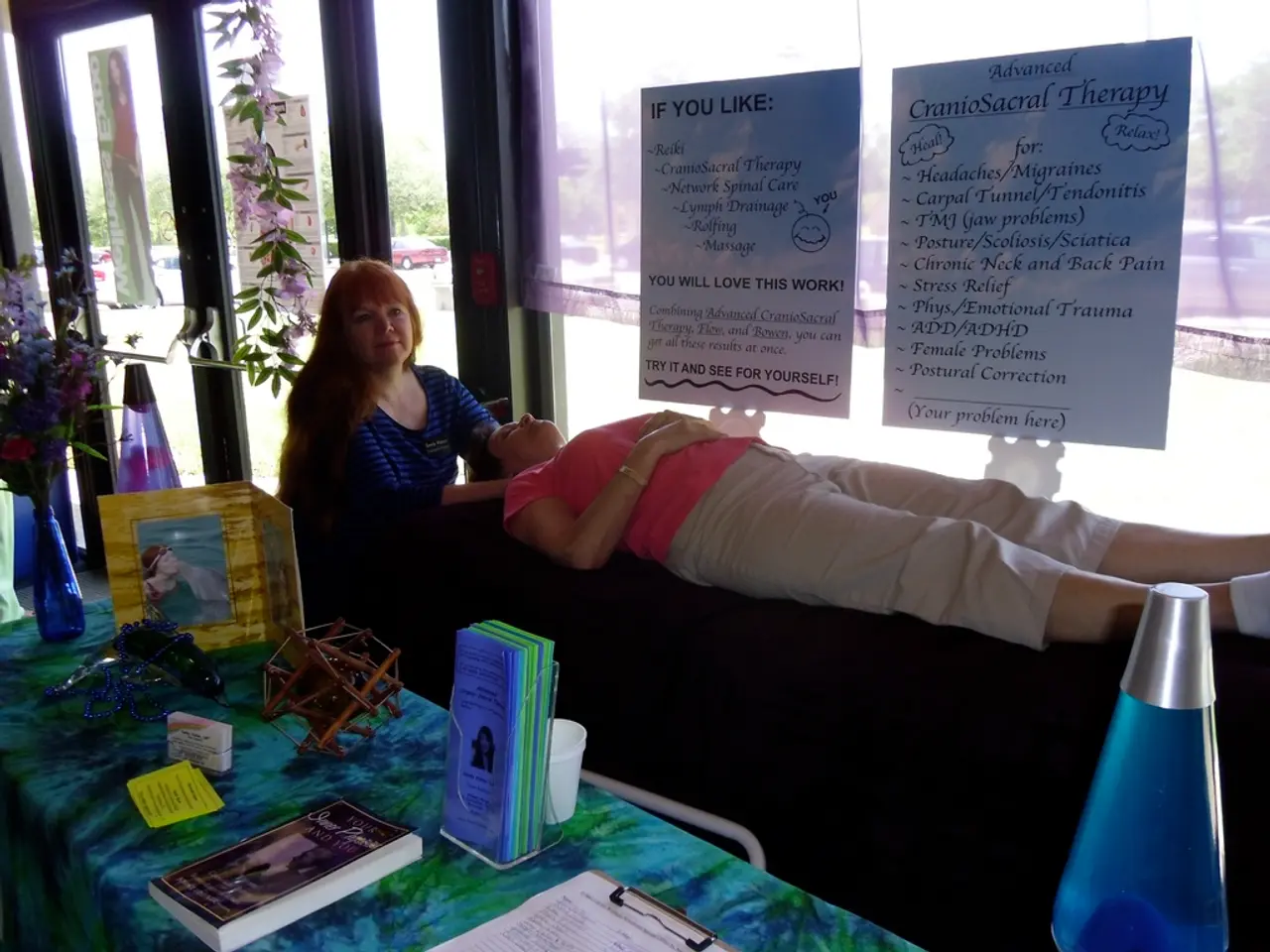Exploring the efficacy of hypnosis in managing anxiety, depression, and fear: Is it an effective solution?
Combining Hypnosis and Cognitive Behavioral Therapy (CBT) for Enhanced Mental Health Treatment
Empirical studies indicate that the combination of hypnosis with cognitive behavioral therapy (CBT) can significantly enhance the effectiveness in treating anxiety, fear, and depression compared to CBT alone. This approach, which has been endorsed by major medical bodies such as the American Psychological Association, has shown promising results in numerous research studies over the past four decades.
In the realm of anxiety and fear, hypnotherapy plays a crucial role in identifying and desensitizing the subconscious roots of fear. By facilitating access to the subconscious mind in a meditative state, hypnosis enables the rewiring of fearful responses more directly than traditional talk therapy alone. This complements CBT's focus on cognitive and behavioral restructuring, resulting in potentially stronger effects when the two techniques are integrated.
One study reported recovery rates of approximately 71% for participants receiving Cognitive Hypnotherapy (a blend of hypnosis and CBT) after about four sessions, compared to 42% for other approaches including CBT alone. This suggests a potentially stronger effect when hypnosis is integrated with CBT techniques.
Regarding depression, hypnotherapy is recognized as a valid complementary approach, and research supports its safety and effectiveness across conditions like phobias and anxiety. The combination of hypnosis and CBT appears to offer benefits beyond what each therapy can achieve individually, addressing subconscious aspects that CBT may not directly reach.
CBT itself is well-documented as effective for anxiety, insomnia, and depression, with high response rates. Adding hypnosis to the mix seems to improve these results, making it a useful adjunct to CBT in clinical practice. For instance, CBT-I, a specific form targeting sleep issues, has shown 70-80% improvement in insomnia cases.
In summary, research findings support the combined use of hypnosis and CBT as a more effective treatment option for anxiety, fear, and depression than either alone. This combined approach, when administered by trained professionals, can offer a more holistic and effective approach to mental health treatment.
While the quantity of large-scale randomized controlled trials directly comparing combined hypnosis+CBT versus CBT alone remains limited, ongoing research is necessary for further validation.
Key Points:
- Anxiety and Fear: Hypnosis aids in subconscious fear desensitization, improving outcomes beyond CBT alone (Recovery rate ~71% with Cognitive Hypnotherapy vs. 42% other methods [2][4]).
- Depression: Hypnosis is endorsed as safe and effective, complementary to CBT’s effects (Research over 40 years; endorsements by APA [1]).
- Insomnia (related CBT area): CBT highly effective; hypnosis may enhance behavioral therapy benefits (70-80% improvement with CBT-I alone [3]).
Additional Points:
- Exposure therapy is a psychological treatment that helps people face their fears by breaking the pattern of fear and avoidance.
- Meditation is moderately effective for anxiety disorders.
- Hypnosis involves a highly trained therapist using therapeutic words, phrases, or techniques to help a person enter an altered state of consciousness.
- Interpersonal therapy could also help with anxiety disorders such as social phobia and post-traumatic stress disorder (PTSD).
- In a 2016 study, scientists found changes in the areas of the brain that allowed for greater emotional control and reduced feelings of self-consciousness in people undergoing hypnosis.
- Mindfulness-based stress reduction may improve symptoms of depression and PTSD.
- Meditation is a form of mental training that allows people to achieve feelings of calmness and physical relaxation, cope with illness, improve psychological balance, and enhance their overall health and well-being.
- According to a meta-analysis of hypnotic interventions, using hypnosis for depression is potentially as effective as other well-known psychological interventions such as CBT and interpersonal therapy.
- CBT is a form of talk therapy that uses structured psychotherapy across a specific number of sessions and focuses on the present rather than the past.
- Research shows that hypnosis can help some individuals manage their anxiety.
- Hypnosis is a technique used for centuries to treat various mental health conditions, including anxiety, depression, and fear.
- Hypnosis has a significant, immediate, and prolonged effect on anxiety in people with cancer, especially for those with procedure-related anxiety.
- Meditation is particularly effective for depression and potentially more so than other therapies under some circumstances.
- Interpersonal therapy can help people cope with major depressive disorder and may offer an alternative to medication.
- Exposure therapy helps with anxiety disorders, including phobias, panic disorder, social anxiety disorder, obsessive-compulsive disorder, PTSD, and generalized anxiety disorder.
- CBT helps individuals identify what is most important to them and work towards achieving these goals, no matter the obstacle. The cognitive model is the basis of CBT, meaning that the way someone views a situation is more critical than the situation itself.
- Various forms of exposure therapy exist, including in vivo exposure, imaginal exposure, and virtual reality exposure.
- Interpersonal therapy is a psychological treatment that links a person's mood to disturbing life events they have experienced.
- The integration of hypnosis and cognitive behavioral therapy (CBT) has shown promising results in the treatment of depression, particularly in rewiring fearful responses and addressing subconscious aspects that CBT may not directly reach.
- In the case of anxiety disorders, hypnotherapy, when combined with CBT, seems to offer recovery rates higher than those achieved with CBT alone, such as the 71% recovery rate reported in a study after about four sessions of Cognitive Hypnotherapy.
- Beyond anxiety and depression, hypnosis and CBT have also been found to be effective in treating sleep issues like insomnia, with CBT-I showing 70-80% improvement in insomnia cases.
- While further large-scale randomized controlled trials comparing combined hypnosis+CBT versus CBT alone are necessary for validation, research findings support the combined use of these therapies as a more effective treatment option for mental health concerns, offering a more holistic and effective approach to mental health treatment.




